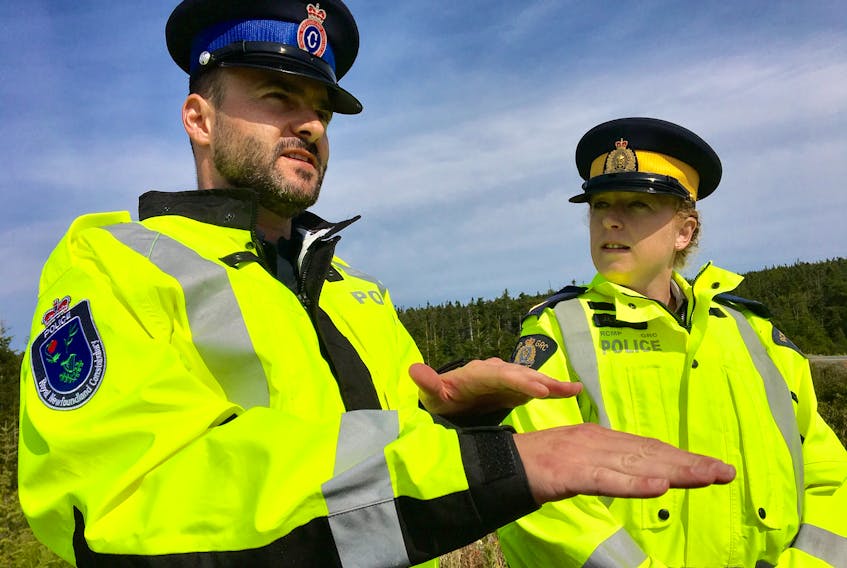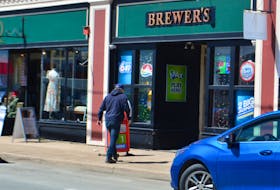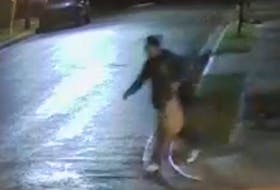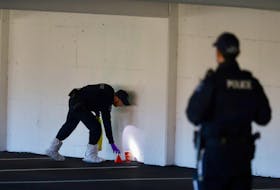If you’re wondering how police forces in this part of the country have been affected since the legalization of marijuana, it depends on where you live.
Three major cities in Atlantic Canada have seen different trends since Oct. 17.
“Now, there’s more ease to laying a charge, as opposed to a Criminal Code offence. … The issue is dealt with there on the scene, as opposed to going to court.”
RCMP N.L. Cpl. Jolene Garland
With little change reported by Halifax police and a slight decrease in violations seen in Charlottetown, P.E.I., the RCMP in Newfoundland and Labrador have seen a few more infractions as people are becoming familiar with the new regulations.
According to RCMP Cpl. Jolene Garland, while the number of cases involving cannabis have decreased, the number of violations has increased.
“I think what we’re seeing now is attributed to the fact that people are still trying to figure out what’s legal and what’s illegal,” Garland said. “Maybe some thought the new law meant a free-for-all. It could be a case where they’re still trying to decipher what the new legislation means.”
“It could also be because we have more finite tools to deal with cannabis because of the new legislation.”

Garland points out, however, the rise in the number of charges have mostly been ticketable, less-serious offences under the Cannabis Control Act, such as smoking marijuana in public or having it in a vehicle, as opposed to offences under the Criminal Code of Canada or Controlled Drugs and Substances Act.
“A lot of times (prior to legalization), officers would be able to use their own departmental discretion (in those cases) and say, ‘We’re going to get rid of that for you’ and a warning would be issued,’” Garland said.
“Now, there’s more ease to laying a charge, as opposed to a Criminal Code offence. … The issue is dealt with there on the scene, as opposed to going to court.
“We’ve got more to work with now to enforce it. ... It’s more black-and-white.”
Meanwhile, Sgt. Jennifer McCarron of the Charlottetown Police Service believes people are quite aware of the law, but many are turning a blind eye to minor offences, like smoking weed in public.
“We had more complaints before it was legalized. It’s not as big a problem as it was,” McCorron said. “We’re not getting the amount of calls we thought we would get.
“I think it may be because people are more accepting of it.”
Const. John MacLeod, public information officer for Halifax Regional Police, said that city hasn’t changed much post-legalization.
“Our calls for service, or nuisance calls, in terms of smoking in public or those kinds of things, have been fairly consistent with what we’ve seen pre-legalization,” he said.
“Our calls for service, or nuisance calls, in terms of smoking in public or those kinds of things, have been fairly consistent with what we’ve seen pre-legalization.”
Const. John MacLeod, public information officer, Halifax Regional Police
“Nothing really that jumps out, statistically. Our numbers have been fairly consistent. There hasn’t been any great draws on our resources since (Oct. 17).”
He was quick to point out that the enforcement of trafficking in cannabis and other drugs from organized crime, as well as impaired driving by drugs, are crimes that still remain high on their radar. He said it’s too early to determine the impact of legalization in those areas.
Const. Geoff Higdon of the Royal Newfoundland Constabulary, the police force in the St. John’s metro area, Corner Brook, Labrador City and Churchill Falls, couldn’t offer a comment relating to changes in behaviour observed by the force since legalization.
“Not enough time has passed to analyze trends,” Higdon said.
However, he said there has been no increase in impaired driving charges and very few cases where officers have had grounds to suspect a driver was impaired by drugs. He added there’s little to compare data to with respect to summary offences.
Police in Sydney, N.S., didn’t respond to a request for comment.
Twitter: TelyRosie









